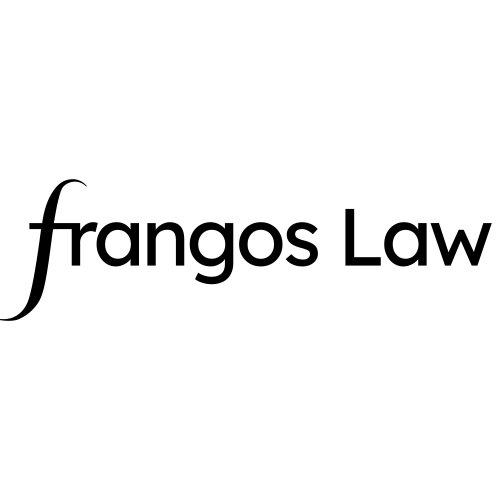Best Art & Cultural Property Law Lawyers in Larnaca
Share your needs with us, get contacted by law firms.
Free. Takes 2 min.
List of the best lawyers in Larnaca, Cyprus
About Art & Cultural Property Law in Larnaca, Cyprus
Art & Cultural Property Law in Larnaca, Cyprus, is primarily concerned with the legal aspects of the protection, ownership, transfer, and preservation of cultural heritage and artworks. This field of law covers a variety of issues ranging from disputes over art ownership to the repatriation of cultural artifacts. Cyprus, with its rich history and cultural significance, has a vested interest in protecting its cultural patrimony. Therefore, law practitioners specializing in this arena must be well-versed in both international treaties and local regulations regarding cultural property.
Why You May Need a Lawyer
There are several situations where individuals or organizations might require legal assistance in the realm of Art & Cultural Property Law in Larnaca:
- Ownership Disputes: Conflicts over the rightful ownership of artworks or cultural property.
- Repatriation Claims: Assistance in the return of cultural artifacts to their countries of origin.
- Art Transactions: Legal guidance during the sale, purchase, or loaning of artworks.
- Cultural Property Theft: Navigating the legal system in the event of theft or illicit trading of cultural items.
- Government Regulations: Compliance with local and international laws regarding the export or display of cultural property.
- Insurance Matters: Expertise in insurance law related to the protection of art and cultural property.
Local Laws Overview
Larnaca, as part of Cyprus, enforces several laws and regulations that are vital for the protection of cultural heritage. Key aspects include:
- Antiquities Law: Governs the protection of ancient artifacts, including provisions for conservation and penalties for illegal excavation.
- Cyprus Museums Law: Provides guidelines for the administration and management of museums holding culturally significant pieces.
- International Treaties: Cyprus is a party to various international agreements such as the UNESCO Convention for the protection of cultural property in the event of armed conflict and the UNIDROIT Convention on stolen or illegally exported cultural objects.
- Cultural Heritage Legal Provisions: Legislation aimed at preserving tangible and intangible cultural heritage, including festivals, traditions, and art forms.
Frequently Asked Questions
What qualifies as cultural property in Cyprus?
Cultural property in Cyprus includes any artifacts, sites, monuments, and works of art that have cultural, historical, or archaeological significance.
Can cultural property be privately owned in Cyprus?
Yes, however, private ownership of cultural property comes with restrictions to ensure its protection and preservation.
What should I do if I discover an artifact on my property?
It is essential to report the discovery to the Department of Antiquities in Cyprus to ensure legal compliance and proper documentation.
Are there restrictions on exporting art from Cyprus?
Yes, there are stringent laws governing the export of culturally significant art to prevent illicit trading and ensure cultural preservation.
How can I authenticate the provenance of an artwork?
Engage a legal expert or a certified art historian to investigate and validate the lineage and ownership history of the artwork.
What are the consequences of dealing in stolen art?
Penalties for dealing in stolen art can be severe, including fines, restitution, and potential imprisonment, along with reputational damage.
How does Cyprus handle repatriation of cultural artifacts?
Cyprus actively engages in repatriation efforts to return artifacts unlawfully taken to their rightful origin, working with international bodies as needed.
What legal protections exist for intangible cultural heritage?
Laws in Cyprus also protect non-physical cultural heritage, such as traditions, dance, and music, to ensure these practices are preserved for future generations.
Can cultural property be used as collateral?
While technically possible, using cultural property as collateral involves complex legal considerations and evaluations of value and risk.
Who is responsible for maintaining cultural sites in Cyprus?
Maintenance and preservation of cultural sites are typically handled by governmental bodies such as the Department of Antiquities.
Additional Resources
If you require more information or assistance related to Art & Cultural Property Law in Larnaca, consider reaching out to the following resources:
- Department of Antiquities, Cyprus: The primary governmental body tasked with cultural heritage protection.
- Cyprus Institute of Archaeology: Offers research and expertise in the field of archaeology and cultural preservation.
- International Council of Museums (ICOM): Provides guidelines and support for museum management and cultural protection globally.
- Local Law Firms Specializing in Art Law: Engaging a lawyer from a firm with expertise in art and cultural property law can provide tailored legal advice and representation.
Next Steps
If you need legal assistance in Art & Cultural Property Law in Larnaca, here are the recommended steps:
- Identify the specific legal issue you are facing, whether it's related to ownership, transaction, or compliance.
- Gather all relevant documentation and evidence related to your case.
- Contact a qualified attorney with experience in art and cultural property law to discuss your situation.
- Ensure your legal counsel is familiar with both local laws and international treaties relevant to your case.
- Consider reaching out to relevant governmental bodies or organizations for additional support and information.
Lawzana helps you find the best lawyers and law firms in Larnaca through a curated and pre-screened list of qualified legal professionals. Our platform offers rankings and detailed profiles of attorneys and law firms, allowing you to compare based on practice areas, including Art & Cultural Property Law, experience, and client feedback.
Each profile includes a description of the firm's areas of practice, client reviews, team members and partners, year of establishment, spoken languages, office locations, contact information, social media presence, and any published articles or resources. Most firms on our platform speak English and are experienced in both local and international legal matters.
Get a quote from top-rated law firms in Larnaca, Cyprus — quickly, securely, and without unnecessary hassle.
Disclaimer:
The information provided on this page is for general informational purposes only and does not constitute legal advice. While we strive to ensure the accuracy and relevance of the content, legal information may change over time, and interpretations of the law can vary. You should always consult with a qualified legal professional for advice specific to your situation.
We disclaim all liability for actions taken or not taken based on the content of this page. If you believe any information is incorrect or outdated, please contact us, and we will review and update it where appropriate.
















